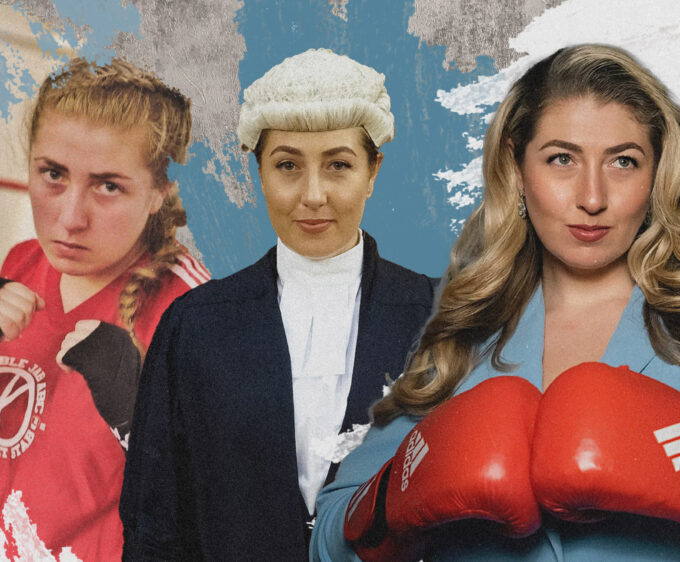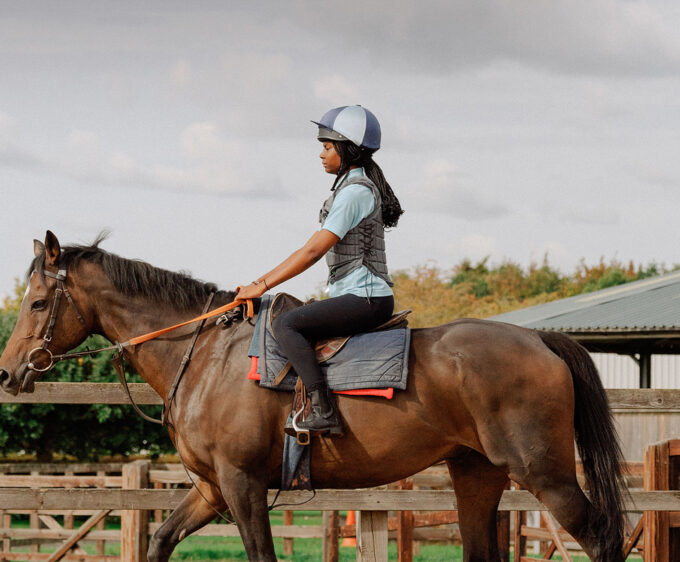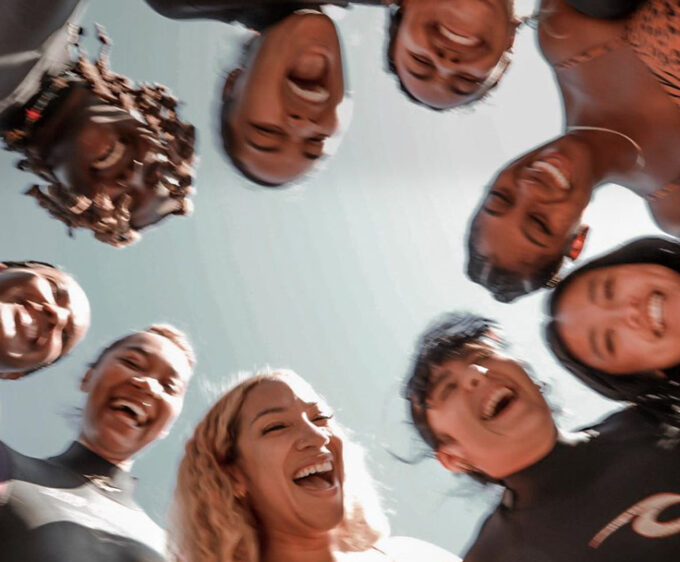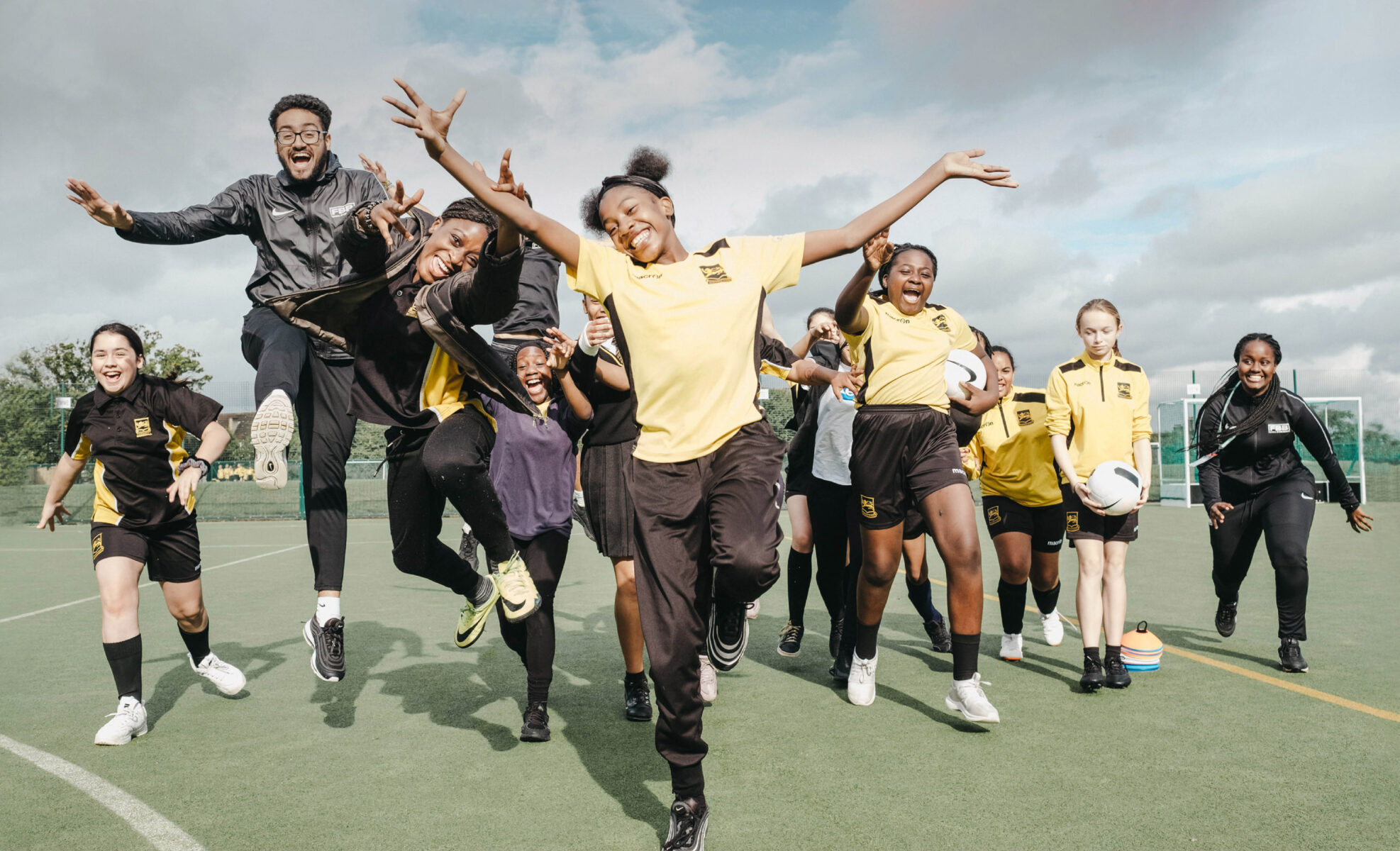
Football Beyond Borders
Can football change lives? Football Beyond Borders is rewriting futures and reshaping communities through dynamic sessions and impactful mentoring, empowering football enthusiasts to excel academically and beyond. Join us as we meet a practitioner and participant to explore the organisation's transformative impact.
By Glorious
Football Beyond Borders (FBB) is transforming the lives of young people and their communities, shaping their future narratives. With a clear mission to change lives, FBB provides intensive and long-term support to passionate football enthusiasts facing disengagement at school, helping them unlock their full potential. Through thousands of dynamic football sessions and impactful mentoring, FBB empowers young individuals from areas of socio-economic disadvantage. Their impressive track record shows that 95% of participants stay in school and achieve remarkable results in their GCSE exams, excelling in English and Maths at a rate eleven times higher than their peers. FBB goes beyond academic support by addressing emotional and behavioural challenges, recognising the importance of social and emotional skills. By creating a dynamic environment that fosters mental well-being and resilience, FBB equips participants to navigate life’s complexities and thrive. We had the privilege of sitting down with Debra, an accomplished FBB graduate turned practitioner, and Maryam, an active participant. Their firsthand experiences reveal the profound and lasting impact that FBB has had on their lives.

Glorious: How did you both become involved in Football Beyond Borders (FBB)?
Debra: I joined FBB back in 2015, becoming the first girl to ever be part of the program. Initially, they were working with at-risk young boys. I was extremely passionate about football and wanted to play as much as possible, both within and outside of school. When the opportunity to join came up, I jumped at it! I started on an all-boys program (in 2015) as the first girl to work with them. It had its ups and downs in terms of acceptance and feeling like I belonged. However, there were moments where I felt at home, and my teammates were accepting and supportive. I continued with the program for the next three years. In 2018, I collaborated with a colleague to pilot a girls’ program in three different schools in South London. We wanted to see what it could look like and which age group to work with. Since then, we’ve expanded to include both boys and girls programs, and we’re gaining recognition for our work with teenage girls, as well as boys.
Maryam: I got involved when I received a letter explaining what FBB was about and what we would be doing. I used to see boys playing football outside on the playground every day, and it looked fun. I wanted to join, so when I heard that there would be a girls’ program, I was really excited. The program was selective, and I had to write down why I wanted to join FBB and the benefits I expected. I was fortunate enough to be selected.
Glorious: So, did you both meet through the program at your school?
Debra: Yes, I was Maryam’s project lead last year. During my journey from participant to practitioner, my colleague and I, who also worked with us in 2018 to pilot the program, went to Maryam’s school as her coaches. We worked together for a year and that’s how we met. Now Maryam has an amazing practitioner, Martha!
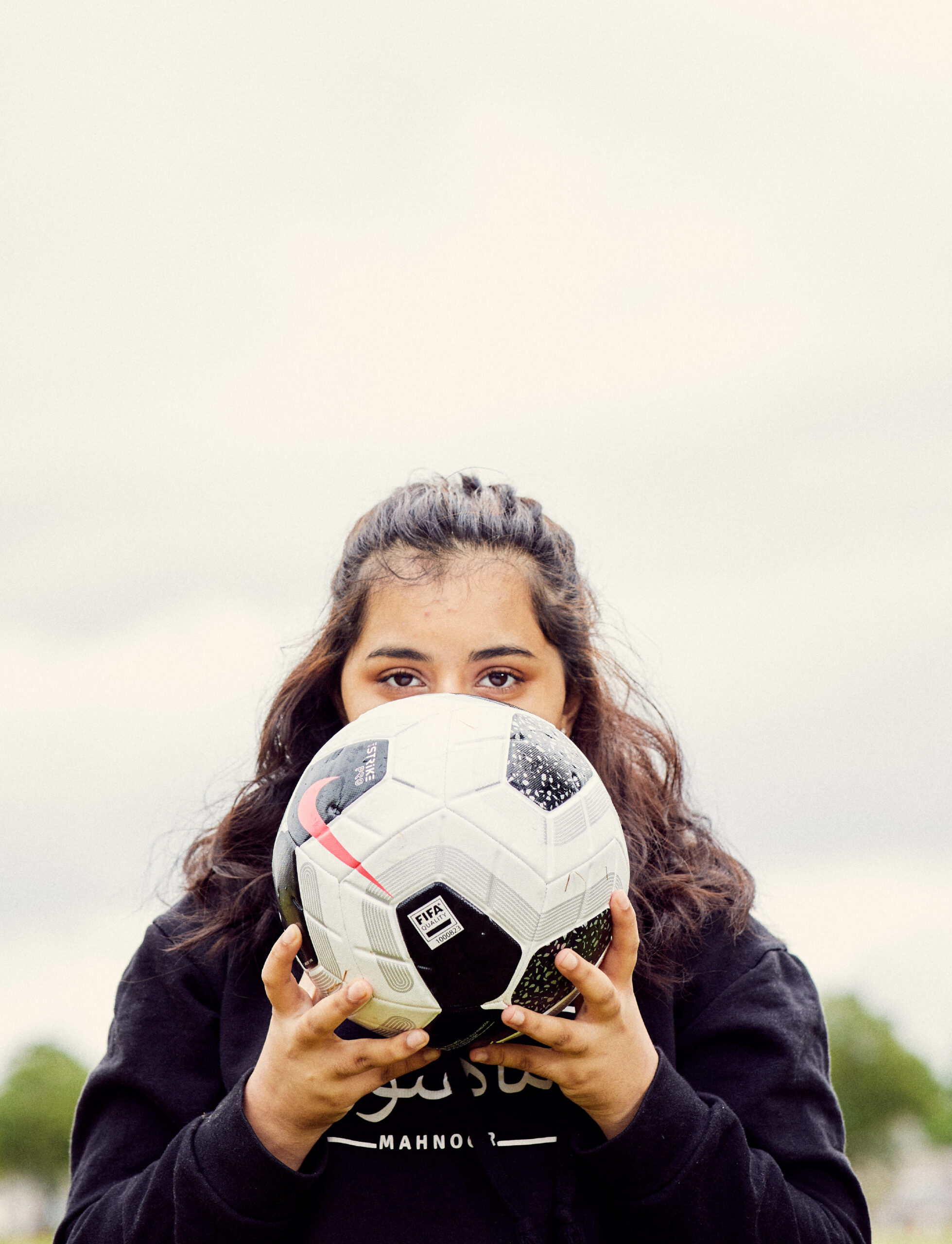
Glorious: So, Debra, you went from being part of the program to becoming a practitioner. Was football or mentoring always something you saw as a career whilst growing up?
Debra: In the beginning, football was just a hobby that I loved. I started playing in primary school, just kicking a ball around with my friends and enjoying myself. Then, I joined a team outside of school, and I realised it could become more serious. However, there were still many barriers, and internally I thought I would never make it to the professional level. I didn’t fully understand what that entailed. I didn’t have the ambition to become a professional footballer, partly because of the environment I grew up in. I lacked a sense of ambition and clarity about what I wanted to do or who I wanted to be. A career in football was never on my radar. If someone had asked me as a child what I wanted to be, I wouldn’t have had an answer related to football at all. But now, through the relationships I built and the opportunities I’ve had, my eyes have been opened to the wider world and the various roles within the football industry.
Glorious: Maryam, how long have you been part of FBB and what is your biggest takeaway from the programme?
Maryam: I joined at the end of Year 7, and now I’m in Year 9, so a couple of years. When I started in Year 7, it was at the end of lockdown, and our school was split into three communities. I didn’t know most of the people in my year. But because I got selected and it wasn’t just from one community, it was from all three, I started seeing more of the FBB participants on Fridays. I got to know them better, and I’ve built strong bonds and lasting friendships.
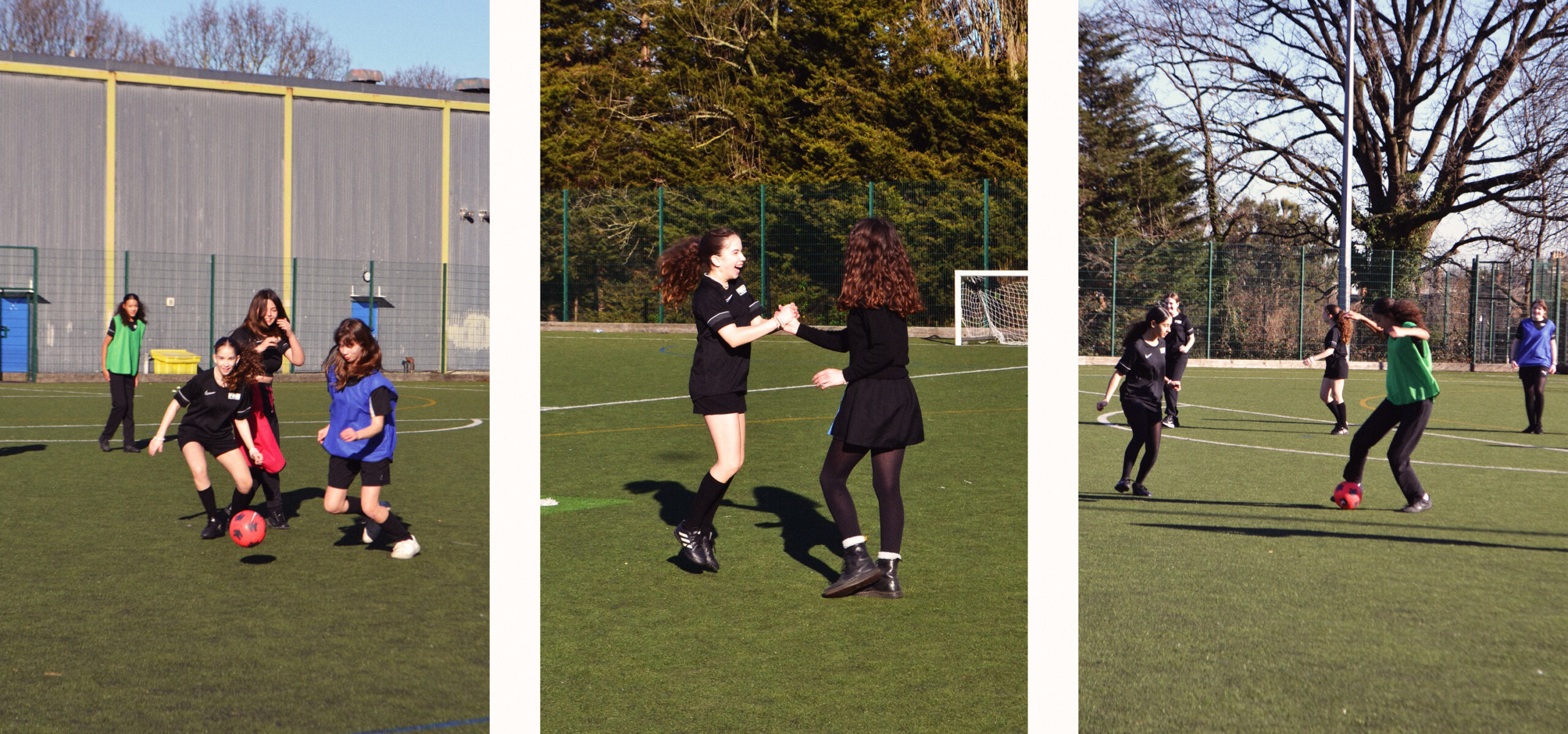
relationships
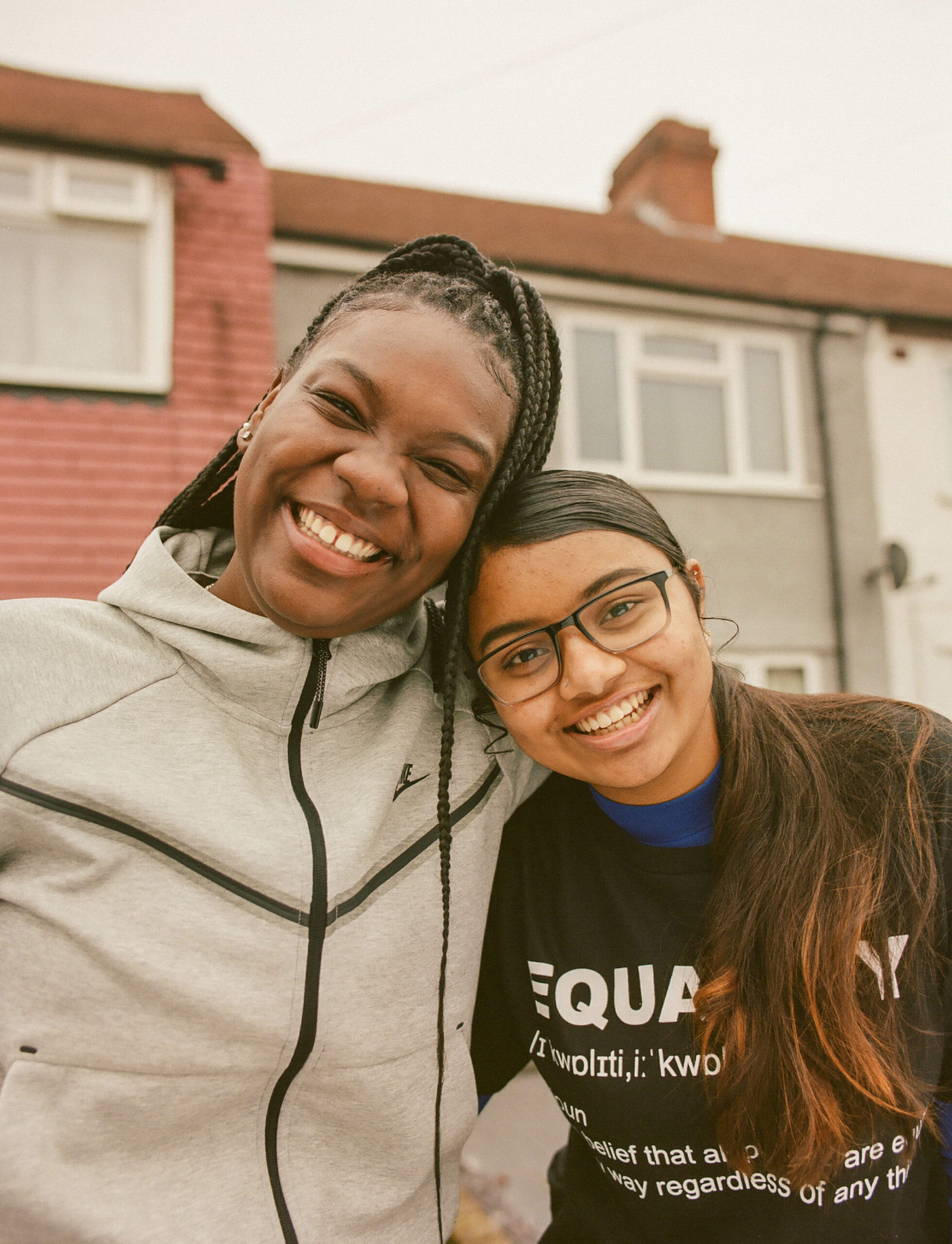
Glorious: Debra, as a practitioner, what are some of the main things you’ve learned that you didn’t realise were vital to your role and how you structure your sessions?
Debra: One thing I’ve learned from being both a participant and a practitioner is the power of relationships. As a young person, I used to think that practitioners would come into my life just to do the FBB session and that it wouldn’t be a long-term thing. I saw it as an external organisation coming into my school to work with me and provide exciting opportunities. But once I became a participant, I realised that these practitioners hold the most important role, similar to that of my family. Stepping into the role of a practitioner, I wanted to create strong, authentic relationships built on trust. When I walk into a classroom, my first priority is to check how the young people are doing, how they’re feeling, and provide a space where we can sit down and get to know each other. I want them to know that they have someone in their corner who truly understands them. In today’s society, young people can’t truly be themselves unless they have a supportive community around them. The best people on the biggest footballing stage are authentically themselves and bounce back because they have a community that supports them. So, for me, the power of relationships is the most important aspect of my role. Even with the girls from the school I worked with last year, whenever we see each other, that love and connection is still there because of the relationships we built over the year.
Glorious: It’s vital to engage younger people in sports and physical activity, as it benefits their mental health and overall wellbeing. Why do you think so many young women drop out of playing sports once they leave education? What do you think schools could learn from FBB in terms of engaging communities of young women?
Debra: The dropout actually happens earlier, around 12 or 13, when young teenage girls experience physical changes and their sense of self further develops. They make decisions about where they believe they fit in. Many girls don’t see themselves in their coaches or PE teachers, and they don’t feel like the sports field is for them. Another barrier is the prescribed PE kit and the expectations around it. When young girls don’t feel comfortable or have the right kit, conflicts arise with teachers, leading to detentions and a diminished interest in sports. Another aspect is that PE lessons can be uninspiring for teenage girls, with repetitive activities and a one-size-fits-all approach. In FBB, we try to give young girls autonomy over what the session looks like, whereas in a regular PE lesson, they don’t have that opportunity. We provide options and activities, allowing them to make decisions about their football sessions and I believe this is one reason why our girls continue playing football.
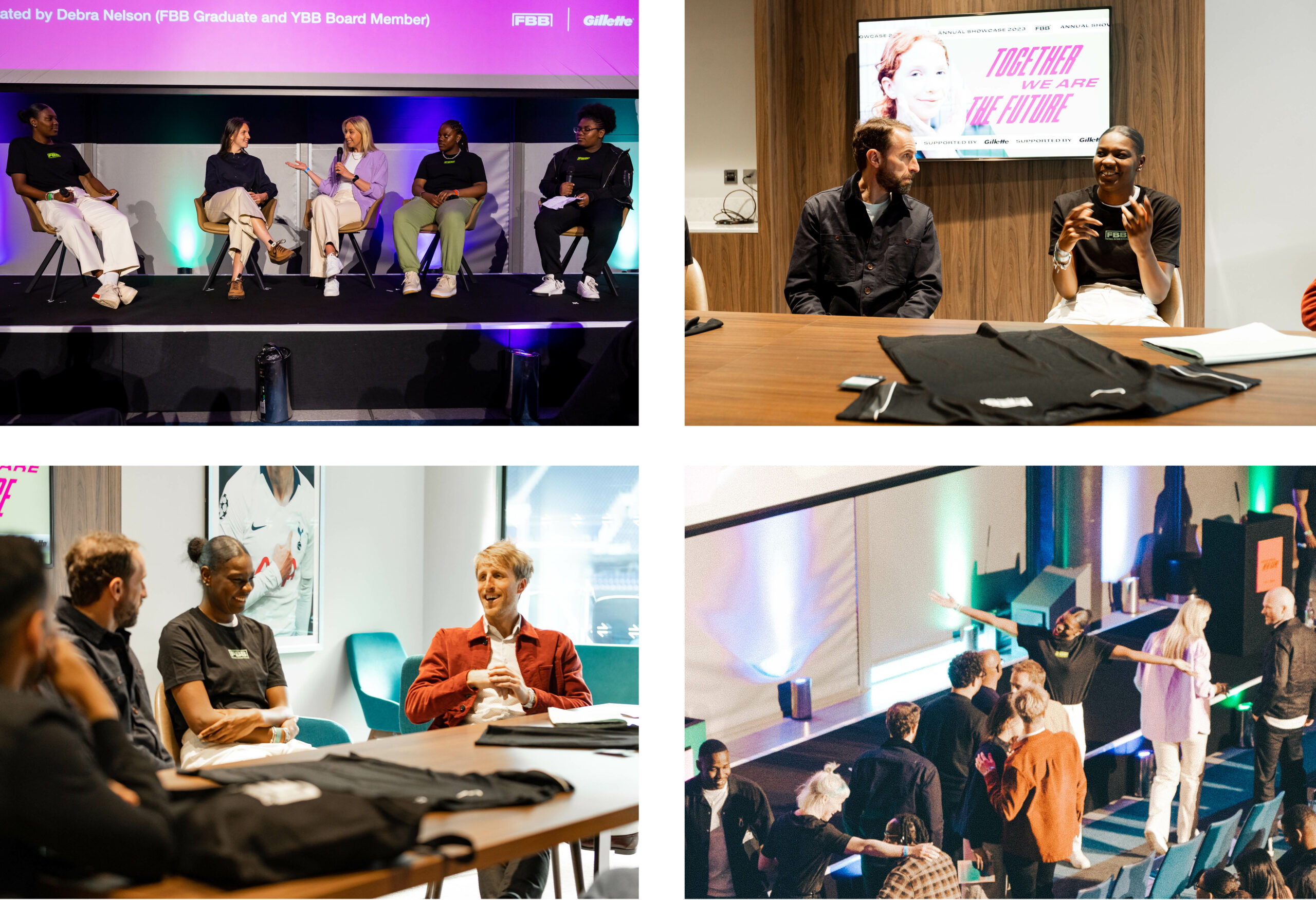
Glorious: Maryam, you were at the Spurs Stadium for the FBB showcase recently. How was your experience? What were your highlights?!
Maryam: I met Lotte Wubben-Moy and saw Gareth Southgate and Ian Wright! It was a fantastic experience for me because I’ve always loved football and seeing a woman achieve so much in the sport was inspiring. I also learned a lot from the other FBB participants and their journeys. There were many young people who joined FBB at a young age and are still involved. My friend and teammate read a beautiful and deep poem about body positivity. I was so proud of her. I also interviewed Lotte which was great.
Glorious: What did you ask Lotte? Did she share anything that stood out to you?
Maryam: She talked about how she deals with having pictures taken of her. Sometimes she doesn’t like the pictures, or maybe her and her teammates feel insecure about something, but they continue to post the images because that’s their reality, and they understand the importance of sharing reality.
Glorious: So, who do you support?
Maryam: Chelsea, Chelsea all the way!
Glorious: Debra, have you got a stand out career highlight?!
Debra: Absolutely! One particular highlight stands out in my mind. In 2018, when I was 17 turning 18, I had transitioned from being an FBB graduate to working as a Project Assistant in schools, assisting the project lead in facilitating sessions. We were working in a school in South London with Year 7 girls. We had built strong relationships and had powerful conversations about identity, community, and self-awareness. Along with the classroom sessions, we also provided reward trips and opportunities to broaden their horizons. On one memorable trip, we took the girls to the beach. For some, it was their first time at the beach or leaving London. Their ambitions were limited, but that trip expanded their horizons. We spent the day enjoying nature, eating fish and chips, playing games on the beach, and having conversations. It was a beautiful moment where we disconnected from our everyday world and burdens, and the girls felt free. It remains one of my favourite memories and represents the importance of relationships in our work.
identity
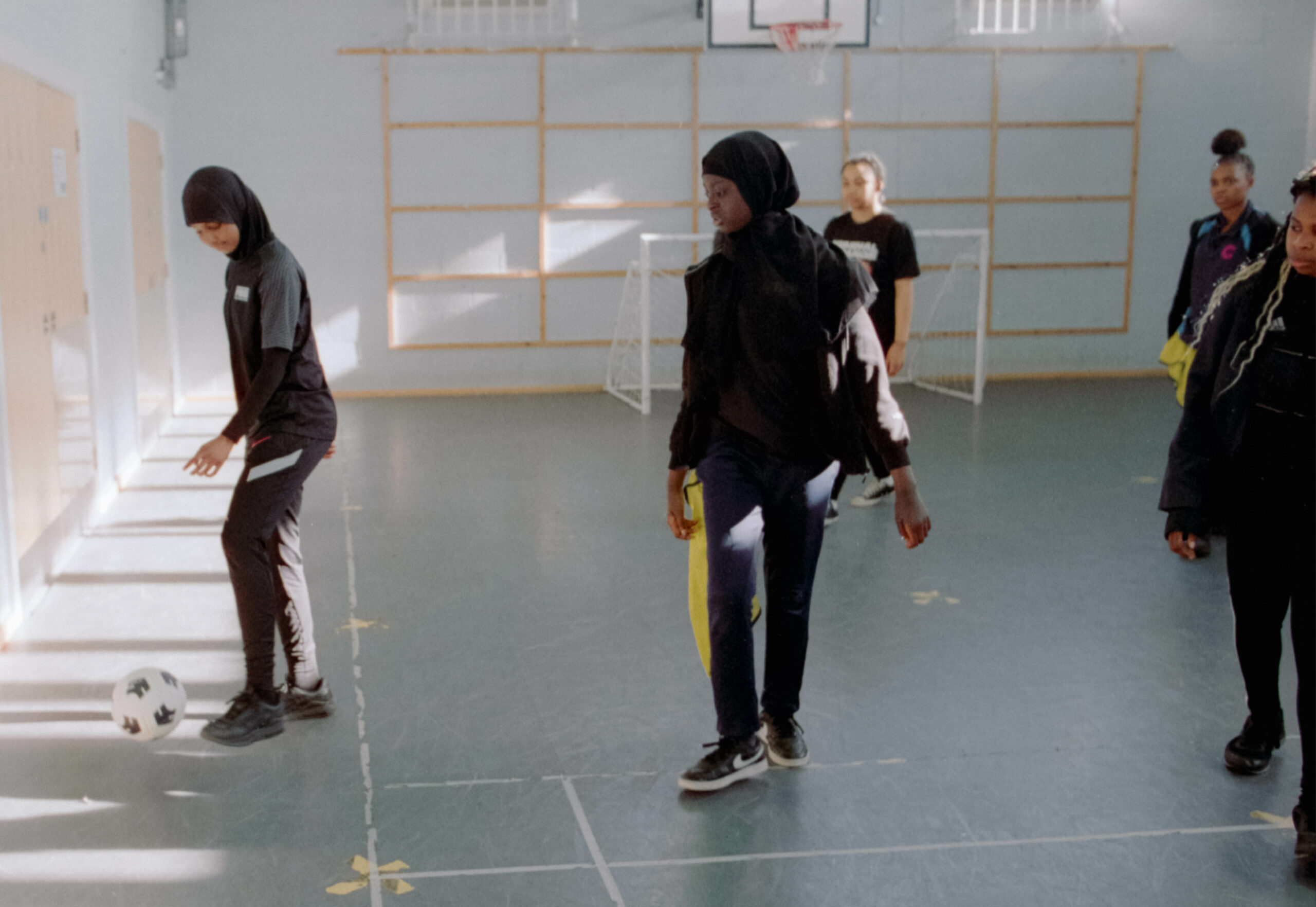
Glorious: I understand that FBB is about more than just football, it’s about being involved and acting as a constant supporter and mentor in someone’s life. Have you noticed an increase in young women wanting to join FBB and attend classes due to the rise of women’s football and increased publicity, such as the Lionesses?
Debra: Our program is slightly different in that we work with a specific group of girls. We’ve always had girls expressing interest in joining FBB because of the impact we have and how embedded we are in their community and school. We work with a group of Year 8 girls, and the word spreads through their friendships and connections. So, the increase in women’s football and publicity has definitely improved engagement and interest nationwide. However, for us, there has always been a consistent level of engagement and curiosity about what we do. While football is a significant part of our program, our classroom sessions focus on safety, community, friendships, and relationships.
Football is like the cherry on top. Overall, the Lionesses have changed the landscape of women’s football in the country and have made a significant impact, especially with their campaigns to improve and provide equal access for teenage girls across the nation. Exciting times lie ahead for us.
Glorious: Amazing. And for the last question, where do you see yourself in the future? Do you plan to continue mentoring? Would you like to have a broader impact on a larger scale?
Debra: I actually want to do both! I have a deep passion for working directly with young people in schools, but I also recognise the benefits of being able to effect change and improvements on a broader level so who knows, watch this space!
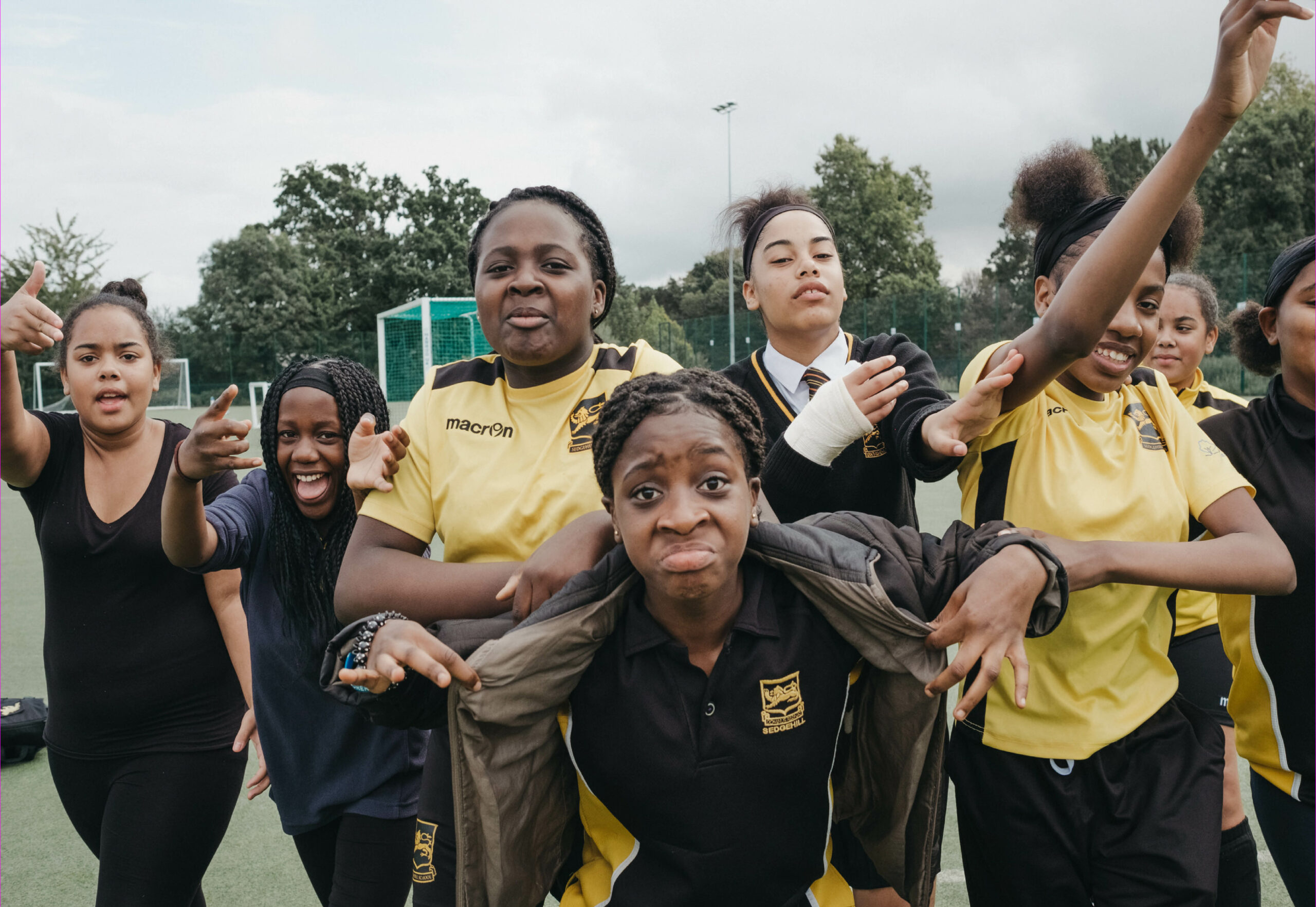
Find out more (and donate!) to Football Beyond Borders to support their campaign to reach hundreds more girls next year here
Editorial design this is root

